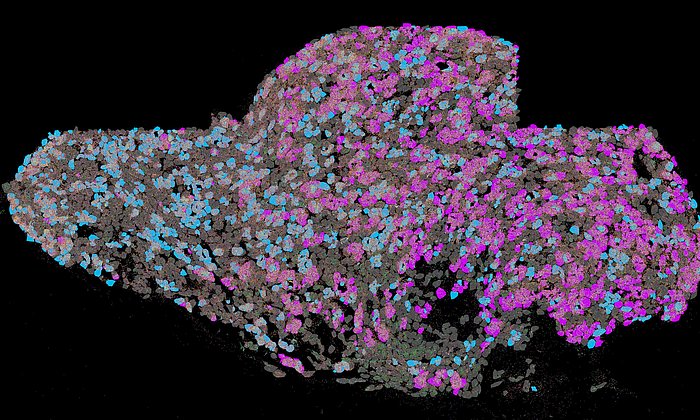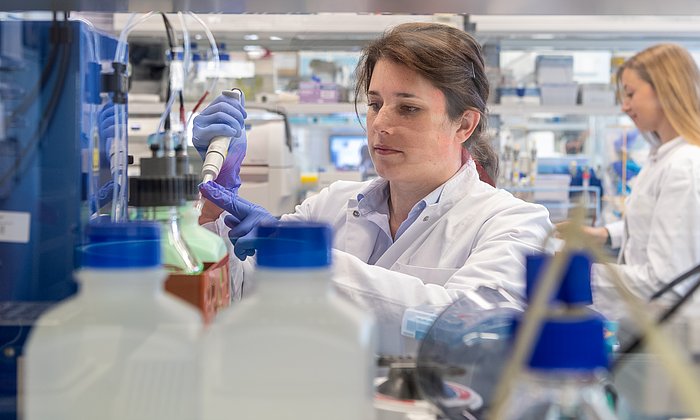EXplained: NUCLEATE with Stefan Engelhardt
Nucleic acids as key to a new class of drugs
Nucleic acids, such as DNA and RNA, are much more than just carriers of genetic information; they control fundamental life processes and offer new possibilities in medicine. This is particularly evident in RNA-based procedures. During the recent pandemic, for instance, mRNA vaccines enabled a significant medical breakthrough in a very short period of time. The Cluster of Excellence NUCLEATE aims to build on this by systematically researching the diversity and functionality of nucleic acids to derive new biomedical applications.
The combination of basic research and translational approaches is essential to the work of the cluster. Researchers from the fields biochemistry, pharmacology, virology, structural biology, bioinformatics, and artificial intelligence will investigate molecular mechanisms and, in parallel, develop tools to apply their findings in practice. The aim is not only to gain a better understanding of biological processes, but also to lay the foundations for innovative medicines and more precise therapies.
We are at the beginning of a new era — the era of nucleic acid-based medicine.
From January 2026, NUCLEATE will be funded by the German Research Foundation (DFG). Alongside the Technical University of Munich (TUM), the cluster will involve the Ludwig-Maximilians-Universität München and the Julius-Maximilians-Universität Würzburg. Other partners include the Max Planck Institute of Biochemistry, Helmholtz Munich, and the Helmholtz Institute for RNA-based Infection Research in Würzburg.
Technical University of Munich
Corporate Communications Center
- Andreas Schmidt
- a.schmidt@tum.de
- 089/28922728
- presse@tum.de
- Teamwebsite
Contacts to this article:
Prof. Dr. Stefan Hanns Engelhardt
Institute of Pharmacology and Toxicology
TUM School of Medicine and Health





